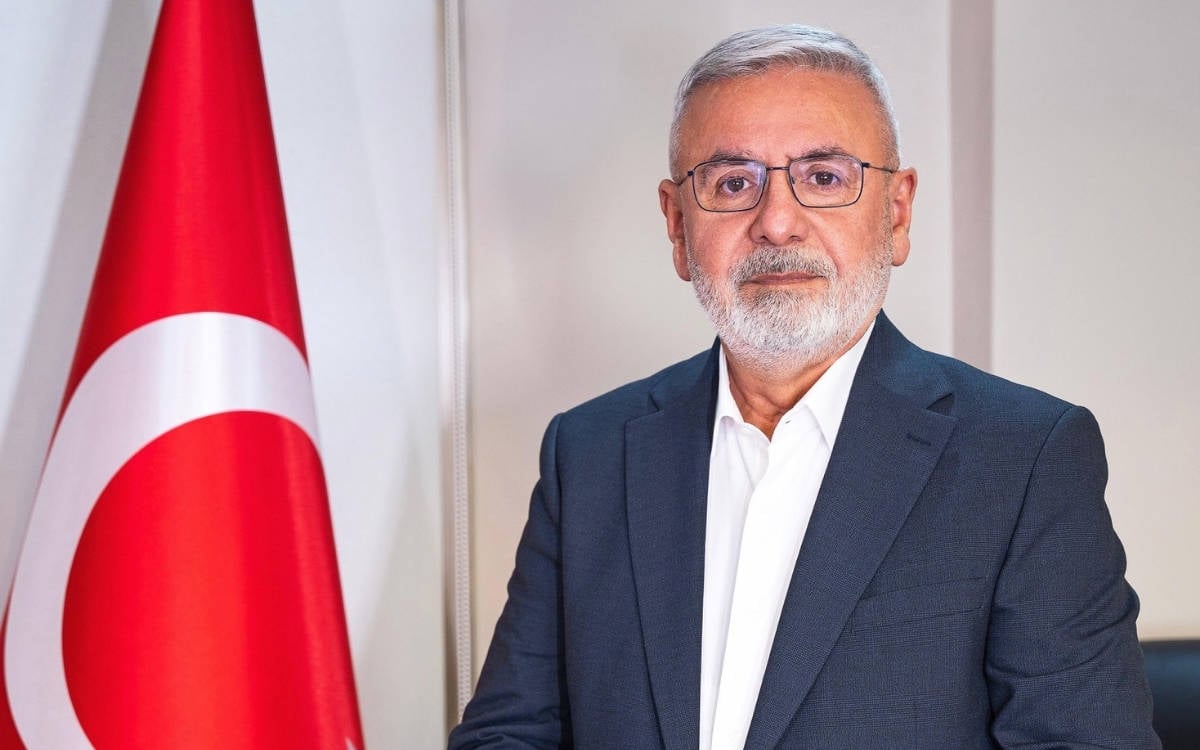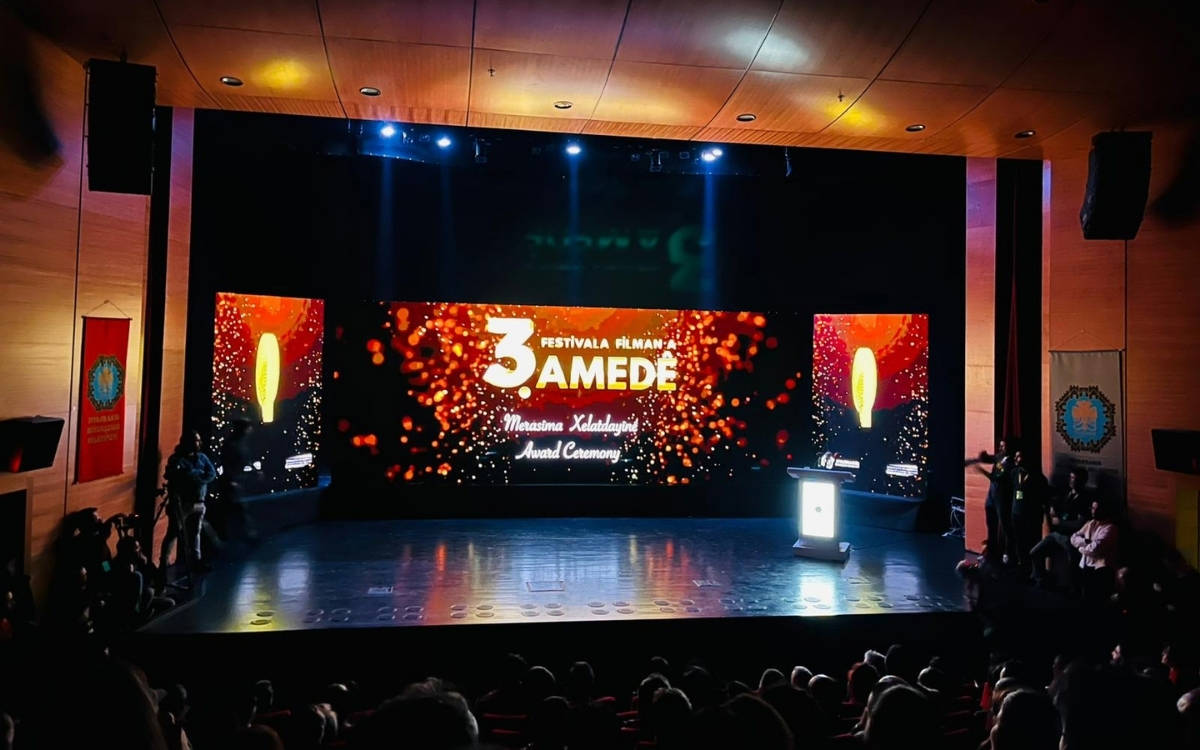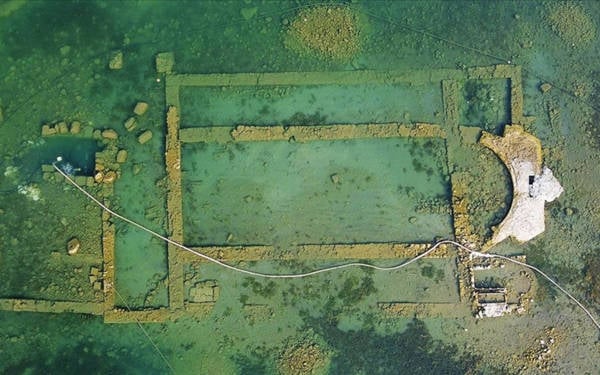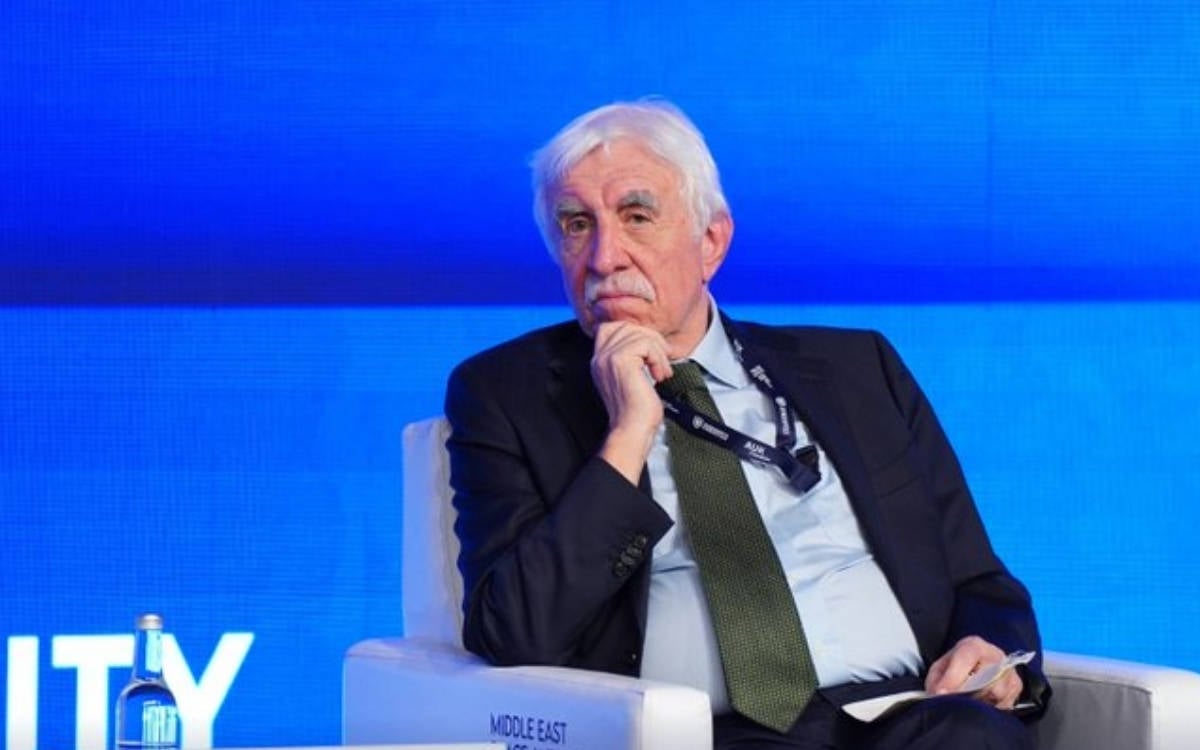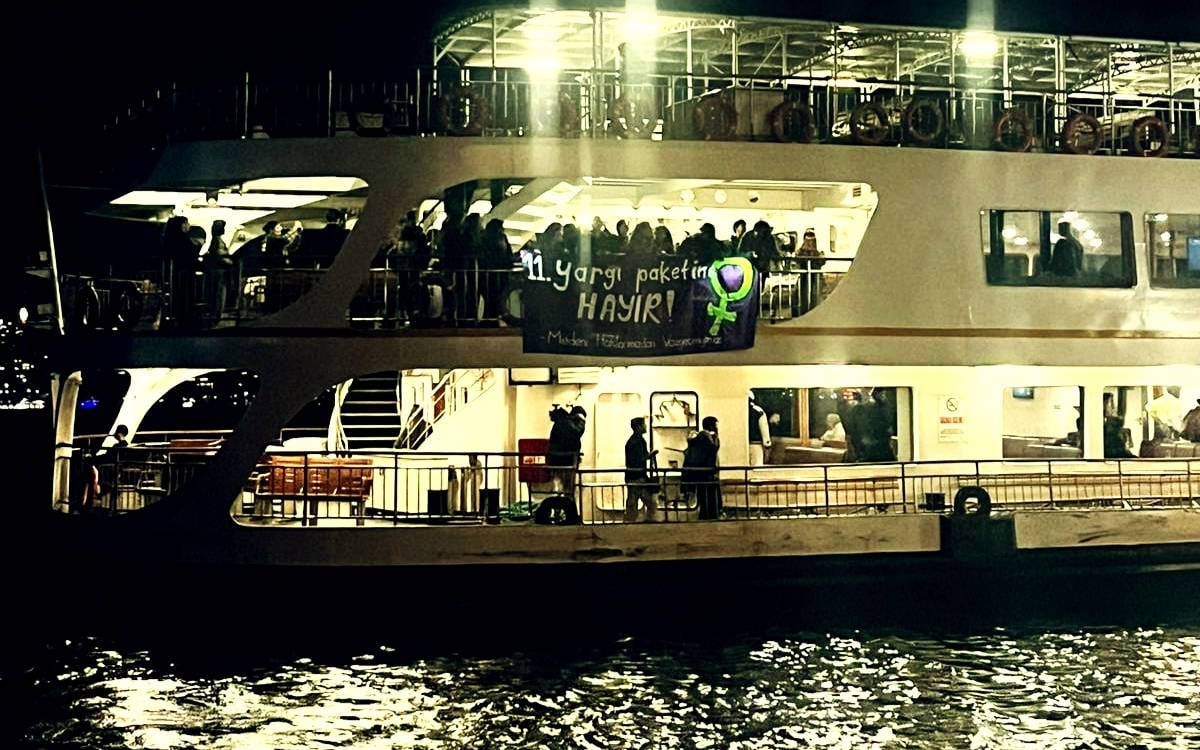Photos: Nazan Özcan, Tuğçe Yılmaz
This article was published on the Atölye BİA (BİA Workshop) website.
Click to read the article in Turkish
Organized to strengthen the ties between the local media and NGOs in Mersin, the "Ecology Journalism Project" roundtable meeting opened with the speech of Nazan Özcan from Atölye BİA/bianet.
Saying that the meeting at Mersin Kültürhane was organized to strengthen the relationship between ecology organizations, local-national media and environmental institutions and organizations in Mersin, Özcan gave the floor to Özer Akdemir from the Evrensel newspaper.
In his speech entitled "What is ecology journalism?" Özer Akdemir said he had started journalism in 1998 in Zonguldak and is also a television producer.
"Journalists can't be impartial"
Talking about what reflexes journalism should be done with and what points of view a reporter should adopt when writing news, Akdemir noted that a line should be drawn between objectivity and impartiality, saying, "In a place where life is defended, a journalist cannot be impartial."
Talking about the professional principles of journalism, Akdemir then drew attention to the environmental problems specific to Mersin. Saying that Mersin is one of the regions that are affected by the climate crisis the most, Akdemir continued his speech as follows:
"Extreme climate events concern every one of us. In an environment where our children's future is shaped, we can't be impartial. All of us have opinions in the face of events and facts, journalists also have opinions. However, the journalist's responsibility to the public takes precedence over their responsibility to their employer, politicians and everyone else."
Technical reporting
"We are faced with unlawfulness every day. We are getting through a period when democratic mass organizations and chairs of professional organizations meet imprisonment. These are the days when the importance of journalism increases even more.
"Of course, the journalism you do will expose you to some risks. Yes, reports we make reach some places, they especially influence the interests of companies and policies of the ruling power; but this is what journalism means. Because you unravel the truths, those who want to conceal the truths are disturbed by you."
Continuing to inform about what reporting is and is not, Akdemir drew attention to how ecology journalism should be done in particular.
Akdemir emphasized that ecology journalism is in fact a "technical" type of journalism and it should be tackled with constantly updated literature and information. Saying that in ecology news, where an event took place should be known well, Akdemir noted that after a journalist gets to know the field, their next aim is to be in constant contact with local institutions and people.
Akdemir also drew attention to the effective use of social media.
The importance of follow-up
Emphasizing the importance of following books and resource publications in the field of ecology, Akdemir continued as follows:
"Of course, there is the pillar of journalism that we call following the idea. There is no such thing as 'I made the report and it's over.' When we detach from the field, we either lose the news or start conveying false news.
"Right now, the subjects of the ecological struggle are villagers. There are platforms in cities, but the subjects should not be the platforms. Let's take the example of Akkuyu. The priority of the Nuclear Power Plant in Akkuyu should be to mobilize the people living in that region. Environmental platforms and organizations then establish partnerships with those people and act accordingly.
"On the other hand, the local is important; but it's also important not to stay local. An integrated ecological struggle that doesn't only focus on the problems around us should be our main goal. As long as we stick to the local, it will be difficult to stand against the extremely powerful dynamics (the capital, the ruling power). I say this not only as a journalist but also as a life defender who has been in the struggle for years."
"We feel alone"
After Akdemir's presentation, representatives of the platforms and organizations that struggle for ecology in Mersin took the floor.
The following was discussed in the first session:
Lawyer Sema Kabasakal, Eastern Mediterranean Environmental Association:
"Mersin is attempted to be destroyed with its mountains and sea. Unfortunately, mayors are also a part of this extinction.
"We receive threats because we object to the slaughter of trees, but we keep the environmental struggle above everything else. Hediye gives us the greatest support in terms of journalism.
"A prison was built in Tarsus recently. This prison was built in the areas where cotton is most fertile. Unfortunately, the agricultural areas are attempting to be destroyed.
"On the other hand, we are struggling against stone quarries in at least five-six places in Mersin. We also reap the fruits of this struggle. The villagers now directly call us. We are having great difficulties, but these difficulties can be overcome by struggling together. Most of the time, we feel alone in the environmental struggle, but we also want everyone to know that we will continue our struggle until we die."
Ahmet Yıldız, MERÇED:
"Villagers here want to see the good and bad results when an incident happens. We thought about what we could do about it and organized a trip to demonstrate the impact of environmental damage on public health.
"They were going to build a coal-fired plant in Yeşilocak. We rented a bus and brought the villagers living in Yeşilocak to a village near the coal-fired power plant in Maraş. People from Yeşilocak listened to the villagers there. They listened to the information and developments such as the villagers had cancer and people don't let their daughters marry people from this village, and then they started the struggle. However, we want to know that we are not alone here and we want the national press to fight with us."
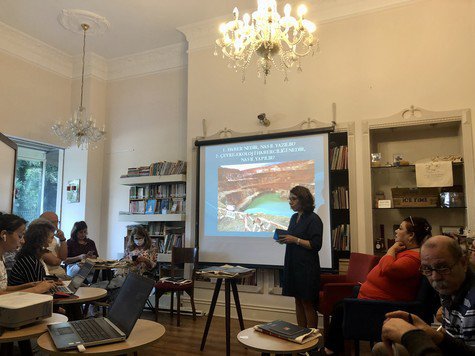
Success in the ecological struggle
Ahmet Tekin, Peoples' Democratic Congress Member:
"The ecological struggle is one of the most otherized struggles; however, the environment is the most useful field for capitalism right now.
"The success of the ecological struggle in Mersin depends on the unity of the struggles in the coastline and in the countryside. We are faced with an enormous depopulation project. Before Akkuyu, there is a great plundering in the New Port, the Container Port, and the coal-fired power plants in Yumurtalık and Samandağ.
"The region from the Cape of Samandağ to the Cape of Anamur should be the main route of the ecological struggle. Everyone must see the plundering there."
A situation that is constantly getting worse
Filiz Ataizi, Limonlu Neighborhood Muktarship Member, Atatürkist Thought Association:
"I have been in Mersin since I was 8 years old, and I can't believe what Mersin has become. Yes, we struggle, and we will continue to struggle until we die because we are the ones who live here. But there is a situation that is constantly getting worse. Everywhere is concrete, you go to the sea but you cannot see the blue.
"What we want from you is to make our struggle more visible. All ecology organizations should unite. This includes unions and professional organizations as well. If you won't be with us today, you will be alone tomorrow as well, don't forget this."
Capital, capital, capital...
Osman Koçak, Term Spokesperson of the Anti-Nuclear Platform:
"In Türkiye, environmental struggles that villagers also join showed that the thing that upsets the balance is the capital's motive for profits. The press has a great role in raising awareness about this.
"Why is a stone quarry built? Where is a mine established? Why does Mehmet Cengiz damage the valley and pile up the stones there to the coast? Why is a nuclear power plant built in Mersin? For the capital to profit. Yes, the press should be objective; but it should also reveal what happens in the background of these activities.
"You are the journalist, write about it"
Hediye Eroğlu, Mersin Haberci Newspaper:
"When we call our news sources, they ask for time; but we don't have such a time. At least, we need to make a preliminary report. We need to get photos. We need to filter the correct information, but speed is the most important thing for us.
"Following the issue is another important topic. Local organizations can follow the news more easily and quicker than us. Because it either is in their areas of interest, or their living spaces are directly threatened.
"It's not like, 'You are the journalist, write about it.' We need to have the correct information. We need to support the news with expert opinions. As a journalist, my request from you is that you convey the correct information and help us in terms of speed."
Women lead the struggle
The session where women's leading role in the ecological struggle and resistance ended with the speech of Mersin Friends of the Environment Association Chair Suna Kılıççı.
Drawing attention to the destruction of nature in Mersin, Kılıççı said, "Our living spaces in Mersin are occupied. We don't know what we will encounter when we get up in the morning."
.jpg)
Second session: Ecology journalism
In the second session, which began with Özer Akdemir's presentation entitled "How is Ecology-Environmental Journalism Done?", the extent of ecology journalism was discussed with examples.
Saying that ecology journalism includes producing reports about the relationship between all living and inanimate things, Akdemir gave the example of Lake Marmara. The most important reason for the drying of Lake Marmara was the failure to solve İzmir's drinking water problem, Akdemir said, adding that the reporter should go to the source of the problem as much as possible.
Economic growth and ecology
A report should not only mention the problems but also recommendations for a solution, Akdemir Said, emphasizing that economic growth and ecological costs are important pillars of ecology journalism.
Akdemir gave the example of MAREN Maraş Electricity Inc., which increased its revenue by 8,754 percent between 2011 and 2013.
In this session, Akdemir mentioned the importance of following the idea through his own experience.
.jpg)
Bergama, Kapadokya, Kisir
Mentioning the cyanide activities in Bergama, the geothermal power plants in Aydın and the Bergama gold mine, Akdemir also touched on the legal aspect of ecology journalism.
Conveying information about how an environmental impact assessment (EIA) report should be read, Akdemir, in relation to the legal aspect of the issue, pointed out the dismissal of the case concerning the attack of the employees of the Koza Mining Company in Bergama against environmentalists. "12 years, 50 hearings... All for nothing," he said.
Pointing out article 56 of the Constitution, Akdemir concluded his speech by mentioning the road to be built in Cappadocia, the work regarding the industrial and medical waste storage area in Kula, and the impact of the uranium drilling and mining on public health in the Kisir village.
"Our living spaces have shrunk"
The following topics were discussed in the second session:
Sebahat Aslan, Mersin Environment and Nature Association Chair:
"As the areas of dirty technology investments in the Marmara and Aegean regions decreased, these installations were moved to the Mediterranean. We prevented the establishment of five thermal power plants in Mersin. Only the locals heard our voices, but the villagers kept watch day and night and prevented the entry of foreign companies by working almost like security guards.
"In Mersin, they now want to close the Atatürk Park with the port. We have been struggling to prevent this. Our living spaces have shrunk so much that we can't breathe anymore. Waste plastics have recently been sold to businesses for money. Up to 5 percent of this waste is recycled, and 90 percent is incinerated and turned into gas.
Struggle
"In the Yalınayak region, there are at least five-six facilities. We struggle against them, but, unfortunately, we can't get serious results. We will also start legal efforts in Adana and Mersin. We shouldn't view lawsuits like 'We won't get results, anyway.' We know we'll have serious gains by struggling.
"One struggle also makes other struggles grow. While we were struggling against the establishment of Akkuyu, we prevented the establishment of thermal power plants. We prevented the establishment of fish farms. What is important is to struggle.
"However, support from the press has decreased a lot. Our voice is not heard in the national press."
Trees in Şırnak
Zeynep Benli, Human Rights Association (İHD) Mersin Branch Co-Chair and Member of İHD Environmental Commission:
"There is intense work regarding quarries in Mersin. Our duty is to inform the peoples about environmental problems. The UN said indigenous peoples have environmental rights and they should be known.
"The displacement of indigenous people and their struggle about that is protected by international laws.
"But we should draw attention to the environmental problems not only in Mersin but also in the entire country. We went to Cizre for the trees cut down in Şırnak. In Cizre, children, the elderly and the women said, 'Don't touch our trees.' But they attacked all of us with gas. People were targeted with gas and water but did not give up on the struggle."
Organizations that attended the roundtable meeting: Ekolog Association, Ekoloji Politik, Mersin Medical Chamber, Günebakan Local and Ecological Agenda, Peoples' Democratic Congress (HDK), İHD Mersin Branch, Mersin Environment and Nature Association (Merçed), Çukurova Human, Seed and Soil Workshops (ÇİTTA), Mersin Haberci Newspaper, Kültürhane, T24, Atatürkist Thought Association, Labor Youth, Association for Solidarity Between Sites, Mersin University. |
* The IPS Communication Foundation/bianet's "Ecology Journalism Project" is supported by the Oslo Metropolitan University Journalism and Media International Center (JMIC). As part of the project, we have so far organized a climate journalism workshop in İstanbul, an ecology network meeting and published an article serious about ecology. (TY/VK)






as.jpg)
.jpg)
.jpg)
.jpg)
